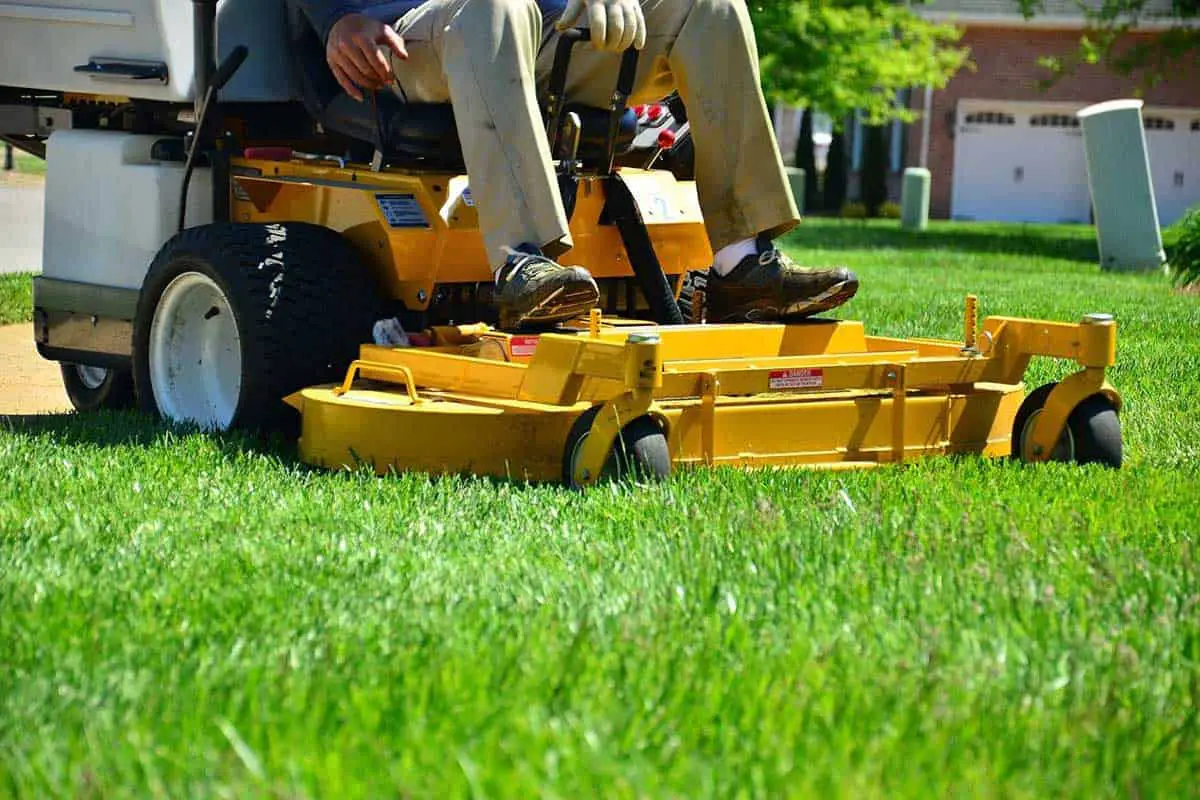This page may contain affiliate links. If you click and buy, we might get a small commission at no cost to you.
Imagine waking up in the morning to the sound of a lawnmower. You assume others in the neighborhood are caring for their lawn, and you decide to follow suit. However, you step outside to find that your neighbor is mowing your lawn for you. This may seem like a nice gesture, but that isn’t always the case.
Can a Neighbor Claim My Land by Mowing it?
While your neighbor mowing your land may be a simple kind gesture, they may be trying to lay claim to it instead. Whether it’s your home lawn or the land of property you own elsewhere, your neighbor may be trying to get adverse possession of land for your property. If this happens, you can take steps to ensure the claim doesn’t go through. Luckily, it’s extremely difficult for a neighbor to claim adverse possession by mowing your private property.
What is Adverse Possession of Land?
In short, adverse possession of land refers to a doctrine that allows a person to acquire possession of land by obtaining possession of it. This person can do so by meeting the common law requirements, possessing the land for a certain period under the statute of limitations, and any other stipulations by the state in which you reside.
Examples of Adverse Possession
The common law requirements for adverse possession of land vary depending on your jurisdiction. With that said, five common law requirements are usually used:
- Continuous: To claim adverse possession, a single person must maintain continuous possession of the land before filing. Possession may be swapped between two parties if blood or service relations exist between them.
- Hostile: To claim adverse possession, the possessor must be there in hostility. This means the possessor does not have consent from the owner to occupy the property.
- Open and Notorious: To claim adverse possession, one must be noticeably in possession of the land. If they are there in secret, adverse possession cannot be claimed.
- Actual: The possessor must also be in actual possession of the property. They can’t lay claim to the land if they aren’t living on it during the process.
- Exclusive: The possessor may not share the land they want adverse possession of until the other party is in a privity relation. The possessor must act as if they are the sole owners of the land.
Common examples of adverse possession of land include living on and maintaining a seemingly abandoned property or occupying an empty rental home that you own.
Legally Claiming Land
In most cases, you can’t legally claim land through adverse possession until you’re at least 21 years old. If a person meets all the requirements necessary to file for adverse possession, they will do so through the state court. The land’s actual owner will then be notified, and the issue will be brought to court.
What to Do When Your Neighbor Tries to Claim Adverse Possession of Your Land
You can do a few different things when your neighbor tries to claim adverse possession of your property. If you find yourself in this situation, you may consider letting them use the property. If you aren’t using the land and give your neighbor permission to, they can no longer lay claim to it.
However, not everyone may be willing to go this route. If you don’t want to relinquish your land to your neighbor, you’ll want to make a trespassing claim and call the authorities. Law enforcement can help solve the situation. If the problem escalates, you should be prepared to hire a lawyer.
Stay Vigilant and Look Out for Signs
The best thing you can do is stay vigilant. If you notice signs of possible adverse possession early on, you’ll have an easier time fixing the problem than you would if you waited. Early signs of adverse possession may be your neighbor mowing your land, leaving items, or building a shed on your property.
If you choose to ignore an issue rather than nip it in the bud early on, you may lose claim to your land.
Hire a Land Surveyor
Let’s say your neighbor just built a shed or a garage just across the property line into your yard. Instead of ignoring your feelings about it potentially being on your property, hire a land surveyor to come out and mark your property.
The land surveyor will be able to tell you the exact measurements of your property, and you can tell for sure whether or not your neighbor trespassed. After your land is surveyed, you can take the necessary actions to fix the problem.
When Your Neighbor Mows Your Lawn Without Your Permission
Your neighbor mowing your lawn without your explicit permission is grounds for legal action. You can sue them for trespassing, but it may be more civil to try to speak to them privately beforehand. In most cases, your neighbor was just trying to do something nice for you. Talking to them privately will allow you to gauge their sincerity in their reasoning.
If you notice their tone leans toward more nefarious intent, you can consult with a lawyer on your next steps.
What is Encroachment?
Encroachment in regards to real estate occurs when one homeowner violates the rights of another homeowner. The term encroachment is typically used when a neighbor purposely builds a garage or shed on their neighbor’s property.
Common encroachment claims include building a fence over the property line, adding structural additions to a home that crosses the property line, or letting hedges and trees overgrow into neighboring properties.
Conclusion
The thought of dealing with adverse possession claims is a stressful thought for landowners everywhere. However, it doesn’t need to be as worried about an issue as one may think. As long as you remember to stay vigilant and pay close attention to your property, you shouldn’t run into any issues.
In fact, a simple talk with your neighbor about setting boundaries can make all the difference in the world. Regardless of your situation, we hope this article has been helpful for you.



